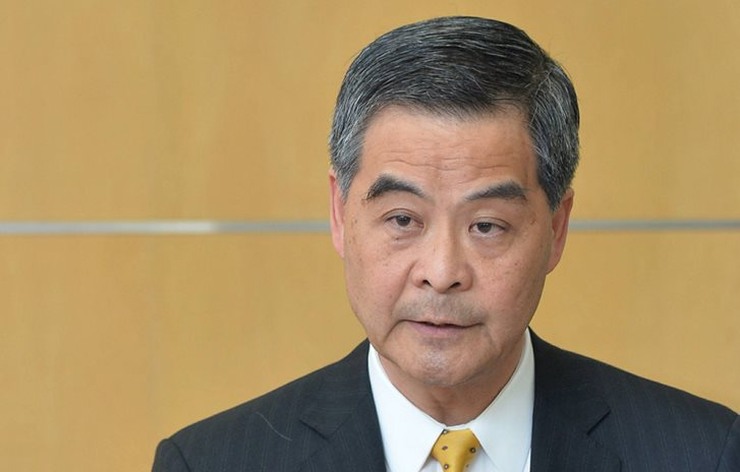Chief Executive Leung Chun-ying’s approval ratings have hit an all-time low since taking office in 2012, according to a new survey published by the University of Hong Kong Public Opinion Programme (HKUPOP).
The programme interviewed 1,009 Hongkongers between May 24-26 through random telephone surveys conducted by real interviewers.

Leung’s popularity rating decreased 3.8 points to 36.2 points since early May, when it stood at 40 points. Leung’s net popularity was also rated a negative 46 per cent, with 19 per cent of respondents satisfied and 64 percent dissatisfied. The figure is down by 5 percentage points from early May and is the lowest since his policy address in January this year, said HKUPOP.

The HKUPOP survey also found that satisfaction rates for the government stand at a negative 24 per cent, with 26 percent satisfied and 50 percent of respondents dissatisfied. The programme said that all changes were within sampling errors.
“In depth analysis shows that the younger and the more educated the respondents, the more critical they are of CY Leung as CE in terms of both support rate and rating,” it said in a press release. Those aged 18-29 gave Leung an approval rating of 23.6 percent, while those 50 or above gave an approval rating of 41.7 percent.
Leung recently invited Zhang Dejiang, China’s No. 3 official, to Hong Kong between May 17-19. Zhang attended a Belt and Road Summit at the Hong Kong Convention and Exhibition Centre. Some 8,000 police officers were mobilised during the official visit and some 200 water barricades were set up. Roads were blocked at places where Zhang visited and a nearby construction site halted all work. Glue was applied on pavements bricks to prevent them from being picked up and thrown whilst officers set up tents on Lion Rock to prevent protest banners from being hung.
